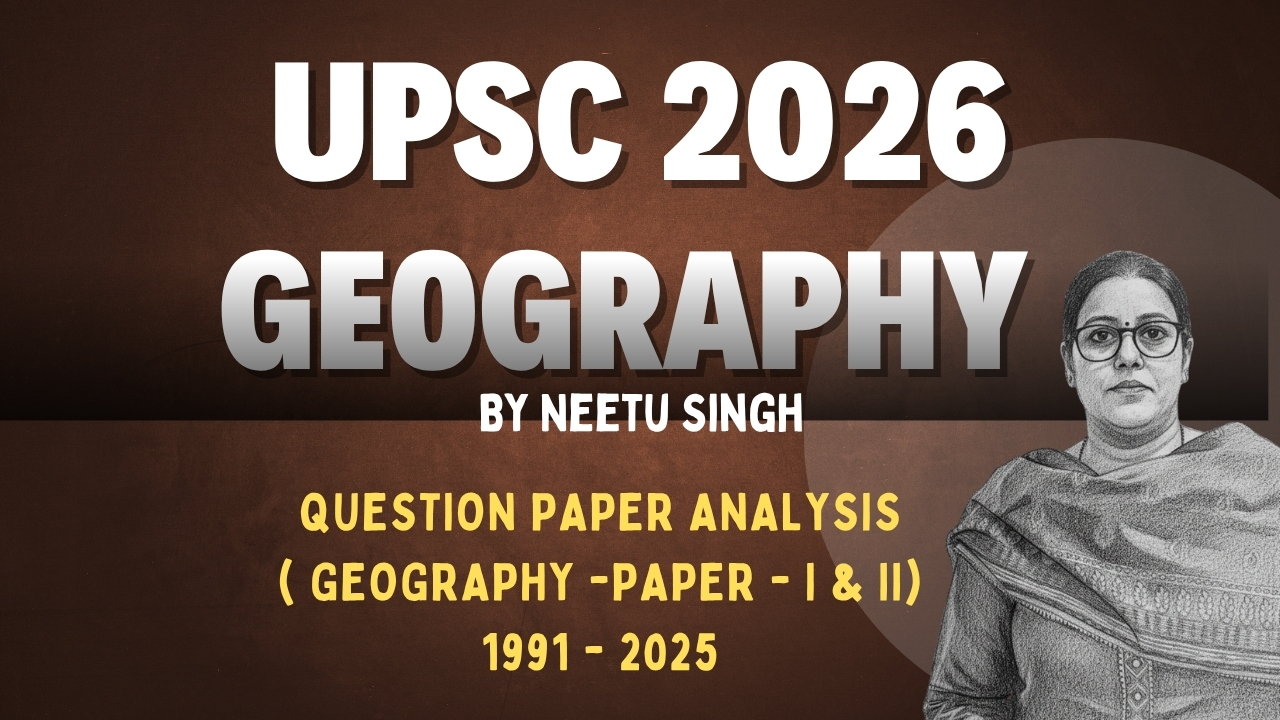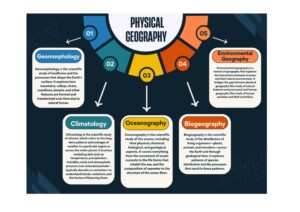
Overview of the Geography Optional Syllabus for UPSC
The Geography Optional syllabus for the UPSC examination is both comprehensive and intellectually stimulating, encompassing a wide range of topics from physical to human geography. It aims to equip aspirants with a holistic understanding of the Earth’s systems and the intricate relationship between humans and their environment.
1.Geomorphology: Factors controlling landform development; endogenetic and exogenetic forces; Origin and evolution of the earth’s crust; Fundamentals of geomagnetism; Physical conditions of the earth’s interior; Geosynclines; Continental drift; Isostasy; Plate tectonics; Recent views on mountain building; Vulcanicity; Earthquakes and Tsunamis; Concepts of geomorphic cycles and Landscape development ; Denudation chronology; Channel morphology; Erosion surfaces; Slope development ; Applied Geomorphology : Geohydrology, economic geology and environment.
The journey begins by highlighting the critical importance of a well-defined strategy. With an extensive syllabus that spans physical, human, and regional geography, a clear plan is essential to maximize efficiency and ensure thorough coverage of all key areas. Geography has emerged as the most popular optional subject among candidates preparing for competitive examinations, particularly the UPSC Civil Services Mains.
Why Geography Optional is i am not from Geography Background.
Geography Optional the study of is about more than just memorizing places on a map. It’s about understanding the complexity of our world appreciating, the diversities, and in the end, it is about using all that knowledge to crack Optional and GS requirement.
Technically the content matter of Geography has three approaches, viz.
Geographers strive to understand Earth’s surface and the processes that shape it, the links between humans and the natural environment, and the spatial linkages among humans and their activities. The geographer is concerned with the how, why, and where of these reciprocal relationships.
Geography Optional paper—a fact clearly reflected in the data provided in the table. The comprehensive and interdisciplinary nature of Geography makes it a powerful subject for those who approach it with a well-crafted strategy and the benefit of expert insights.
For the last 23 years Geography Optional has proved to be the most selected and most successful optional. Our Top Ranks : 2010 (Pulkit) AIR 5th, 2011 (Sundraj) AIR 5th, 2012 (Arun) AIR 6th, 2013 (Chanchal Rana) AIR 7th, 2014 (Suharsha) AIR 5th 2015 (Vipin Garg) AIR 20th, 2016 (Samuya) AIR 4th, 2017 (Pratham) AIR 5th, 2018 (Girdhar) AIR 61th 2019 (Gunjan Singh) AIR 16th 2020 (Ashiware Verma) 2021 AIR 4th (Muskan Srivastava) AIR 98 (Shivang Srivastava) AIR 102 Best Geography Institute for civil services examination.
Highest Marks in this Institute in UPSC
The Geography Optional Topper scored 306 marks out of 500(AIR 12) 2021 YASHARTH SHEKHAR.
The Geography Optional Topper scored 327 marks out of 500 AIR 5 2017 PARTHAM KAUSHIK.
Nature of Questions in Geography Optional
The second area of inquiry is how to promote sustainability.
The third area of inquiry is how to recognize and cope with the spatial reorganization of economy and society.
